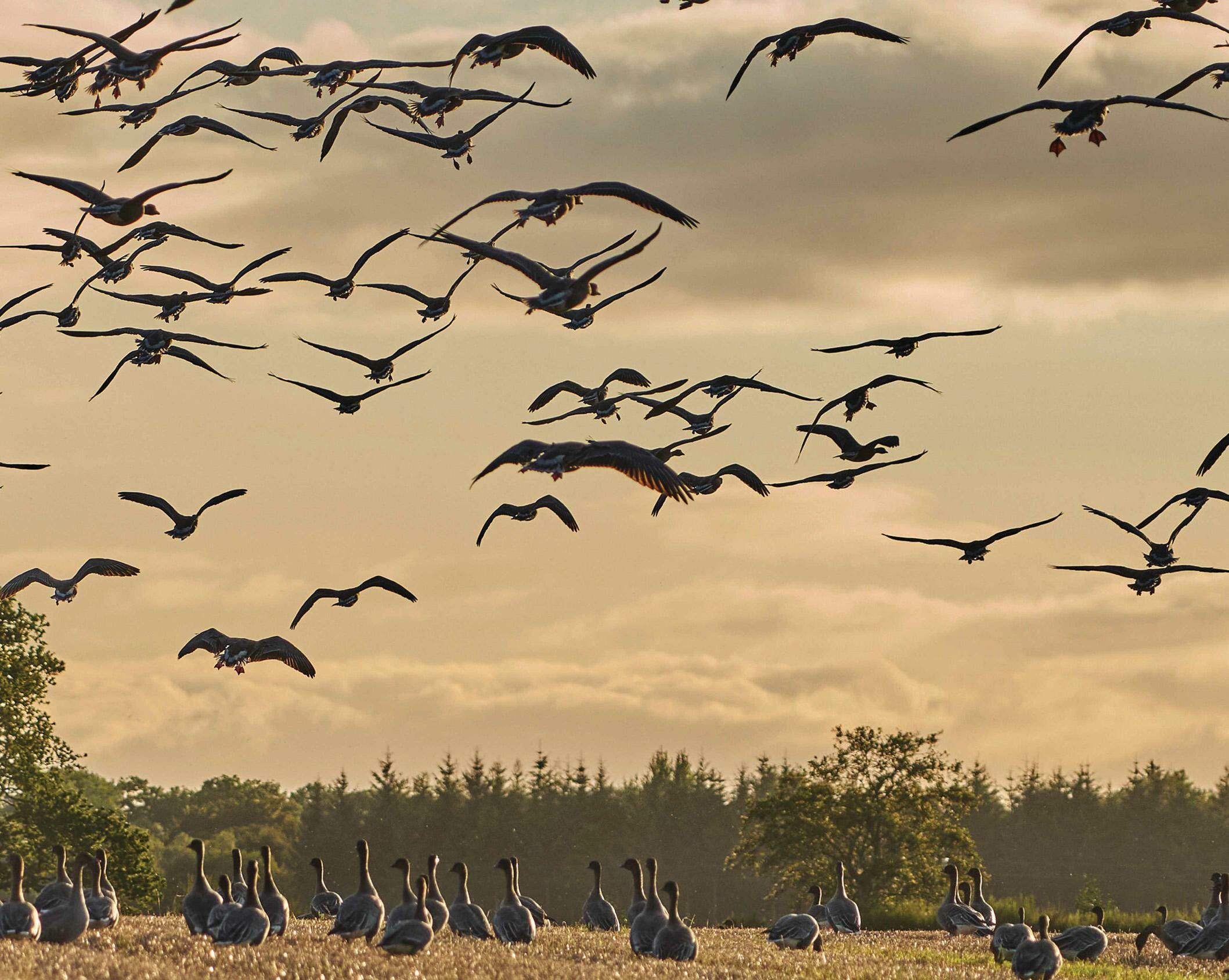
You are standing at the edge of a vast river estuary. To your right you can see the small seaside village of Findhorn; to your left you can make out the distant mountains of the Highlands. Directly behind you is a wooden birdwatching pavilion slowly falling into disrepair.
It’s a cold winter morning and a low mist is hovering over the surrounding salt marsh. The mournful cries of curlews and oystercatchers stand out from the incessant murmur of thousands of pinkfooted geese further out, which appear as a mass of swirling grey. Having spent the night roosting on the mudflats, the birds are taking a while to warm up. Their calls are at first muted and staccato, with the occasional louder ‘wink’ echoing through the melee. As the sun climbs higher, the light creeps across the nearby airfield and gradually the hubbub crescendos into a flurry of feathers and noisy calls.
A ripple moves through the flock, and the birds prepare to move. One or two skeins take to the air and circle once or twice in preparation for their forthcoming flight. When they are sufficiently warmed by the sun, they lift off, line after line, calling to each other as they go, in a breathtaking natural spectacle.
Then, there’s the unmistakeable sound of a gunshot.
Around the bay, along the high-water line, is a series of small camouflage screens. Behind each is a wildfowler with a shotgun. They have been in position since 5am, and as the geese take off, they can finally attempt to claim their prize. A series of shots rings out, but it’s difficult to see if any birds are hit because of the enormity of the flock.
This story is from the Spring 2023 edition of BBC Wildlife.
Start your 7-day Magzter GOLD free trial to access thousands of curated premium stories, and 9,000+ magazines and newspapers.
Already a subscriber ? Sign In
This story is from the Spring 2023 edition of BBC Wildlife.
Start your 7-day Magzter GOLD free trial to access thousands of curated premium stories, and 9,000+ magazines and newspapers.
Already a subscriber? Sign In

SNAP-CHAT
Justin Gilligan on giant spider crabs and holding hands with an octopus

STEPPE CHANGE
Herds of saiga have returned to Kazakhstan, but there's a fine balance to tread

TREES FOR LIFE
Community is at the heart of conservation in the tropical forests of southern Belize

WHEN DOVES CRY
Turtle doves are now the UK's fastest declining bird species, but the RSPB is on a mission to save them

SURVIVAL OF THE CUTEST
We can't help being drawn to cute creatures, but our aesthetic preferences both help and hinder conservation

LIGHT ON THE NORTH
Spectacular images of Arctic foxes, reindeer and musk oxen reveal the wild beauty and diversity of Scandinavia

ROLLING IN THE DEEP
The super-sized crustacean that lives in the deepest, darkest ocean

LET'S GET TOGETHER
Clay licks deep in the Amazon explode in a riot of colour, with macaws the stars of the show

FEMALE OF THE SPECIES
To sponge or not to sponge? That is the question for the bottlenose dolphins (Tursiops aduncus) living in Shark Bay, Western Australia.

7 nature encounters for the month ahead
WITH NATURALIST AND AUTHOR BEN HOARE